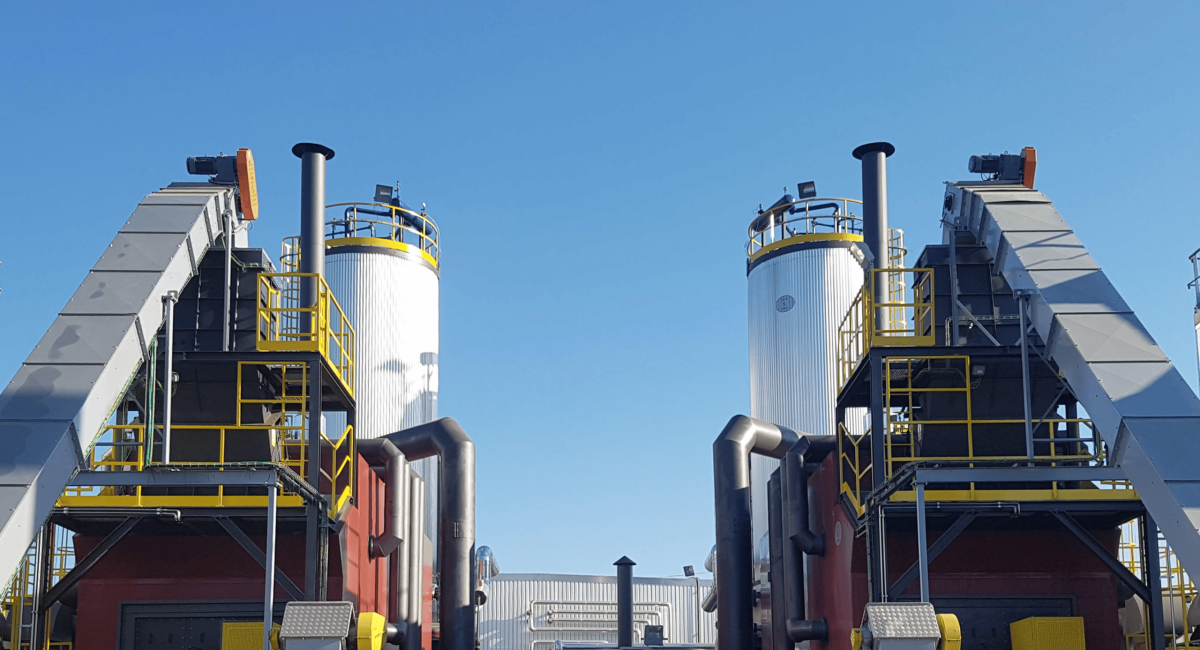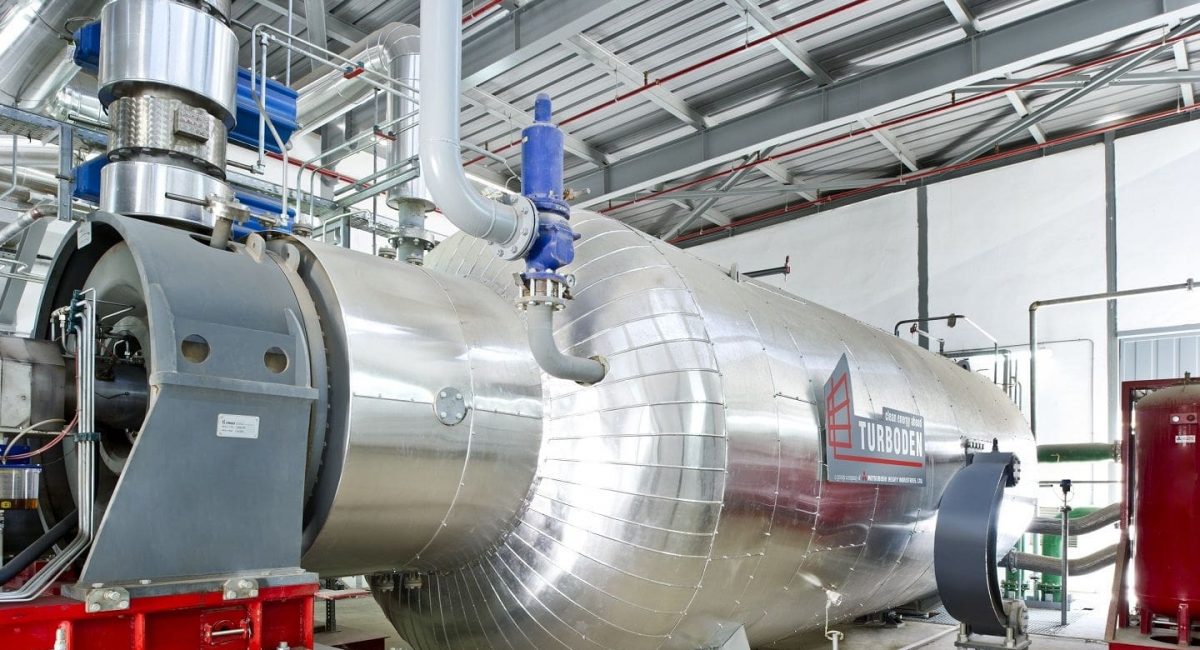How can I benefit from RDF as a resource?
The United Kingdom produces around 463kg of municipal solid waste per person per year or 30.8 billion in total. After this has been refined with valuable recyclable materials such as metal and glass extracted, the leftover plastics, named Refuse Derived Fuel (RDF) or Solid Refuse Fuel (SRF) is often exported abroad or sent to landfill. As the waste sent to landfill decomposes, harmful methane is released into the atmosphere contributing to climate change and air pollution. Although landfill use is still an option for waste removal, many municipalities are working to zero landfill targets by 2025. So, what should we do with all that waste?
RDF as a by-product of manufactured goods has traditionally been seen as an end of life product which needs to be replaced with recyclable materials. Although we want to respect the hierarchy of materials and reuse and recycle where we can, RDF is actually a valuable resource which when used as fuel to generate heat and power, can help us to cut down on fossil fuel use and provide long-term fuel security. Novalux Energy, installers of distributed waste to energy systems is keen to address this idea. Joe Allcott, Managing Director, states:
‘The incineration of waste has previously been seen as something to avoid, but by using state of the art abatement and filtration systems to cut down on emissions, we can use RDF as fuel and provide a solution to both the waste and energy problem.’
To use RDF as fuel, businesses will need an RDF boiler with abatement and scrubbing with Selective Catalyctic NOX Reduction (SCR) alongside an Organic Rankine Cycle (ORC) to produce power. The combination of this technology allows a gate fee to be charged for the RDF whilst income can be made from selling excess energy back to the grid through a Power Purchase Agreement, generating solid financial benefits for the owner.


As installers of renewable heat and power systems Novalux Energy are able to address the different demands of each business, including; more process heat for manufacturing, space heat on site, or income from selling excess energy produced back to the grid. Whether for a business firing 12,000 tonnes of RDF per year to 200,000 tonnes, each system is designed bespoke to suit annual tonnage, heat and electricity demands, and fuel type.
Despite steam and thermal oil boilers being suitable for fuelling with RDF, the best contender for smaller scale recycling sites is thermal oil which allows cheaper EPC and plant costs due to being able achieve high temperatures at low pressure. As pressure is directly related to cost of systems, this is a great option for most businesses.
To get a budget estimate on an RDF boiler and ORC for your site fill in the form below.
Choosing Steam or Thermal Oil Technology when Fuelling with RDF?
Processing large amounts of RDF and sending to landfill or overseas can be costly, and with technology now available for smaller distributed sites many businesses are choosing to install their own heat and power plants to provide additional incomes streams and make savings. But how do you identify which technology is correct for your business? And what savings might be made?
When fuelling with RDF there are two main types of boilers, thermal oil and steam. Both of these technologies can be applied to a number of different applications but there are uses which are better suited to one process or the other. A key decision factor is whether you have requirements for process heat and how much. For example, businesses which raise steam for processing such as food suppliers could install a steam boiler and turbine to make large savings throughout the manufacturing process.
For a steam boiler and turbine to generate a meaningful amount of power the system needs to be run at high pressure, so without a need for steam the system size needs to be large enough to justify the cost. Without this demand, a thermal oil boiler would be the most suitable option for fuelling with RDF as it works at small scale with lower pressure making it financially viable for smaller distributed sites.
Thermal oil boilers are suited to burning a variety of fuel types including RDF. The systems are much more flexible than steam, due to boiler temperatures which can be adjusted and used for a variety of different fuel types. For smaller, distributed sites this can be the key to longevity. As any business will want to be aware of long-term factors, it’s important to keep in mind long-term fuel security.
A good example of the flexibility of a thermal oil boiler and Organic Rankine Cycle (ORC) is a site recently installed by Novalux Energy at Goodwood Estate. The boiler system is comprised of a 3.5MW thermal oil boiler and 700kWe ORC to provide heat and power to the hotel and estate. In this case a Sugimat boiler and Turboden ORC will be fuelled by straw and leftover waste from forestry activities on site. If Goodwood Estate wish to convert to fuelling with RDF at a later date, this can be easily achieved. The site can then switch over to fuelling with RDF and be paid a gate fee for accepting waste.
Novalux Energy provides engineering, procurement and construction (EPC) of technology, with turnkey installation and our own UK based team, meaning we can recommend the appropriate technology to align with your business. Without having exclusivity to one technology Novalux can recommend the most suitable system for your business. To visit the Turboden ORC and Sugimat boiler at Goodwood Estate please click here.
If you would like to ask any additional questions, contact kgadsby@novaluxenergy.com or fill out the form below.
Why Novalux Installs Thermal Oil Boilers & ORC
Novalux Energy provides engineering, procurement and construction (EPC) of technology, with turnkey installation and our own UK team, meaning that we can design and install the best technology for your business. To fuel with 10,000-150,000 tonnes of RDF per year, a Sugimat thermal oil boiler coupled with Turboden ORC will provide a long-term solution and attractive ROI. To learn more about this technology and watch it being installed see below.
a 3.5MW Thermal Oil boiler and 700kWe ORC installed by Novalux at Goodwood Estate
The best technology for or sites up to 50MW without need for steam is a Sugimat thermal oil boiler and Turboden ORC. Novalux recommends thermal oil boilers as the technology pairs well with ORC whilst also lending itself to smaller scale EfW, this is because thermal oil can generate high temperature at low pressure which keeps installation and operation costs down.
Sugimat has developed the Horizon+ rotary boiler in order to handle difficult fuel types such as RDF. The boiler continuously rotates, and a granular media passes through the rotating coil inside of the boiler to automatically clean the surface from ash residue, ensuring peak performance at all times. Novalux recommends this technology to help customers cut down on maintenance and prolong the life of their system. The boiler can be paired with an Organic Rankine Cycle to generate power on site in addition to heat.
The Turboden Organic Rankine Cycle (ORC) generates power from heat produced by a boiler. The technology runs off thermal oil so works well in conjunction with the Sugimat Horizon+ rotary boiler. The ORC has a closed loop circuit using a working fluid which continuously flows through a low RPM turbine to generate power. Due to the use of thermal oil, the system has a high efficiency and is much simpler to operate in comparison to a steam turbine. Novalux recommends the Turboden ORC to generate high efficiency power in addition to hot water for heating or process loads.
Novalux is technology agnostic which means we will only ever recommend the most suitable system for the demands of your site. With over ten years in the renewables industry we’re able to guide our customers with the knowledge we’ve acquired from more than 100 installations of renewable technology. To learn more about the technology we install, why it works and the ROI you can expect to see, watch Joe Allcott, Novalux Energy’s Managing Director talk about how you can use a thermal oil boiler and ORC to generate heat and power from RDF here.
How to generate your own heat and power with RDF
The Solution to Small Scale EfW from 3.5MW-50MW
Generating heat and power from RDF makes good economic sense, but choosing the right system and business model is paramount to your return on investment. Watch the presentation to see Joe Allcott, Managing Director of Novalux Energy demonstrate how you can use waste as fuel and maximise your profits with a Novalux case study of an RDF fuelled Sugimat thermal oil boiler and Turboden Organic Rankine Cycle (ORC). As an engineering, procurement and construction (EPC) company with over ten years of experience and a UK installation team, Novalux will can you to identify the correct technology for your business with comparisons between steam and thermal oil, alongside examples of Novalux projects.
Got a question? We're always happy to help.
Head office
Novalux Energy, Blackbrook Estate, Skenfrith, Monmouth, NP7 8UB
01600 463 008
